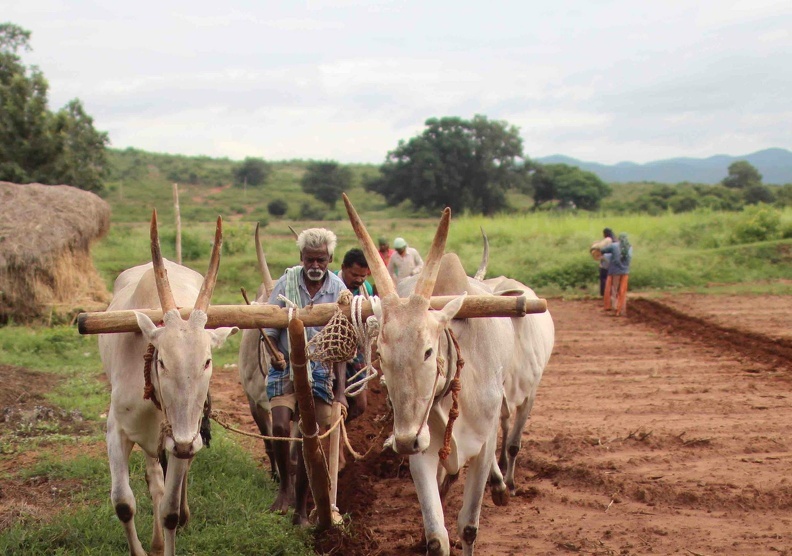UN Food Systems Summit: Social Movements call for True Food Systems Change

ROME, ITALY—As the United Nations Food Systems Summit stocktaking event begins today, the largest global food justice movements, small-scale food producer organizations, and Indigenous Peoples, representing millions of people across the world, have released a new statement denouncing the United Nations’ controversial approach to tackling hunger and malnutrition.
In a press conference on 17 July, representatives from the People’s Autonomous Response to the UN Food Systems Summit (UNFSS) highlighted the urgent, coordinated actions that are needed to overcome the global hunger crises, and respond to the rights and demands of those most affected by the hunger, climate and health crises.
“The UN Food Systems Summit (UNFSS) has not only overlooked our rights and the structural causes of the crises..the intention of the Summit organizers is to sell us the corporate and industrial project as transformation.”
Saúl Vicente from the International Indian Treaty Council
The movements and organizations opposing the Summit call for an urgent shift away from corporate-driven industrial models and towards biodiverse, agroecological, community-led food systems that prioritize the public interest over profit-making.
The rights of peoples to access and control land and productive resources must be guaranteed, and agroecological production models and peasant seeds promoted.”
Ibrahima Coulibaly, President of the Network of West African Farmers and Agricultural Producers’ Organizations (ROPPA)
Two years ago, the UN Summit sparked an unprecedented global countermobilization. The main concern of the Summit’s critics was – and remains – the escalating influence of corporations and their proxy organizations within the United Nations.
“Don’t appoint the goat as gardener, a peasant proverb says… The corporate ag, food, and data giants don’t care about democratic governance in the UN – they just use it for their profits. Like the goat, corporations will eat the salad and the roses, if you don’t stop them”.
Patti Naylor from the National Family Farm Coalition
Real food systems change for people and the planet is urgently needed and possible, but with the current hunger figures, the UN will not meet their Sustainable Development Goal of zero hunger by 2030. This ongoing and systemic crisis is a product of policy failures and omissions, and a result of pursuing a problematic path that leads to the exacerbation of inequalities and dependencies, destruction of environments and biodiversity, and spillover effects aggravating the global debt and climate crises.
“Over the past two decades, people from all over the world have presented concrete, effective strategies for addressing the climate and food crises based on respect for social and racial diversity, justice, and human and collective rights. Foremost among these are food sovereignty, agroecology, revitalisation of biodiversity, territorial markets and a solidarity-based economy,” says Shalmali Guttal, from Focus on the Global South. “The evidence is overwhelming – the solutions devised by small-scale food producers and Indigenous Peoples not only feed the world but also advance gender, social, economic justice, youth empowerment, workers’ rights and real resilience to crises. Why are policy makers not listening to them and providing them with adequate support?”
A new FIAN report released in parallel to the statement, “Food Systems Transformation – In which direction?”, calls for an urgent overhaul of the global food governance architecture to guarantee decision-making that prioritizes the public good and the right to food for all.
The communities in the front lines of the food crisis are being used by corporations as an alibi to increase profits. The tragedy is that policy makers at the food system summit are ignoring social movements’ far more effective ideas about how to end hunger.”Raj Patel
“In these times of growing hunger and multiple crises, it is more urgent than ever that governments and the UN listen to us” says ….We call on you: change direction, and support our demands and efforts for a food sovereign future based on human rights and the principles of agroecology, care, justice, diversity, solidarity and accountability.”
Perla Álvarez from La Vía Campesina
Read the Autonomous People’s Response to the UN Food Systems Summit+2
About the People’s Autonomous Response to the UN Food Systems SummitThe People’s Autonomous Response to the UN Food Systems Summit (UNFSS) was initiated by and is anchored in the Civil Society and Indigenous Peoples’ Mechanism (CSIPM) for relations with the UN Committee on World Food Security (CFS). The CSIPM is the world’s largest platform of civil society and Indigenous Peoples’ organizations working on the right to food, food sovereignty and food security and nutrition. The participating organizations of the CSIPM have more than 380 million affiliated members. The People’s Autonomous Response garnered support beyond the Mechanism, with several hundred national, regional and global organizations supporting its declarations and actions.
